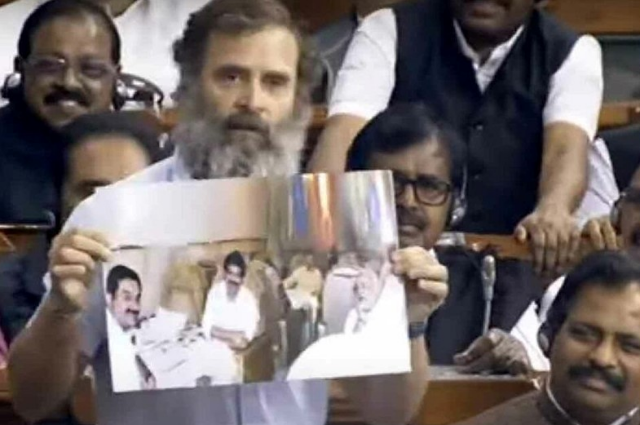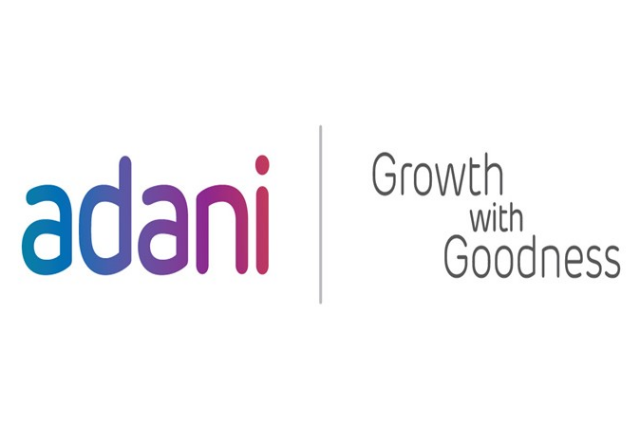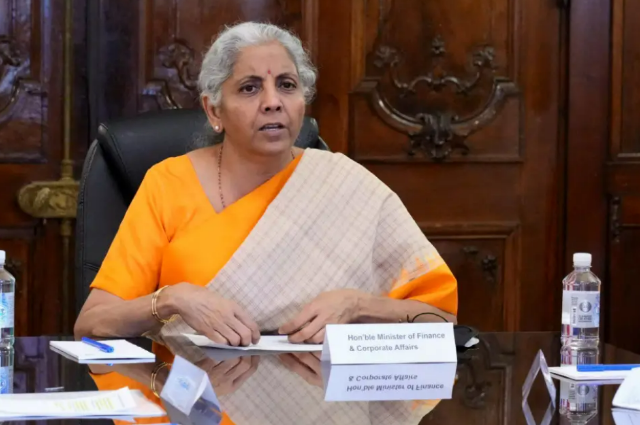Introduction
The Hindenburg Research report on the Adani Group, which was published in January 2023, is a critical examination of the business and accounting procedures used by the Indian company. The research has ignited a contentious discussion over one of India's leading company operations and presents significant concerns about the integrity and legality of Adani Group's activities.
A multinational corporation, Adani Group has holdings in ports, shipping, agribusiness, energy, property investment, and defence. The corporation is a significant actor in the Indian corporate sector with earnings of over $11 billion in the financial year 2021. The Hindenburg report asserts that the business exaggerated its profits and understated its liabilities by using unethical accounting techniques.
Who exactly is HINDENBURG?
The Hindenburg website states that Nate Anderson started the business. The research agency based in the United States conducts a forensic financial investigation. With an emphasis on equity, credit, and financial research, it has expertise in investment management. They are particularly interested in businesses that have a mix of regulatory problems, unreported related party activities, accounting errors, etc. Hindenburg also engages in aggressive short selling in addition to financial analysis. Moreover, Hindenburg owned short bets in a number of the portfolio's listed Adani corporations.
Defining Short Selling
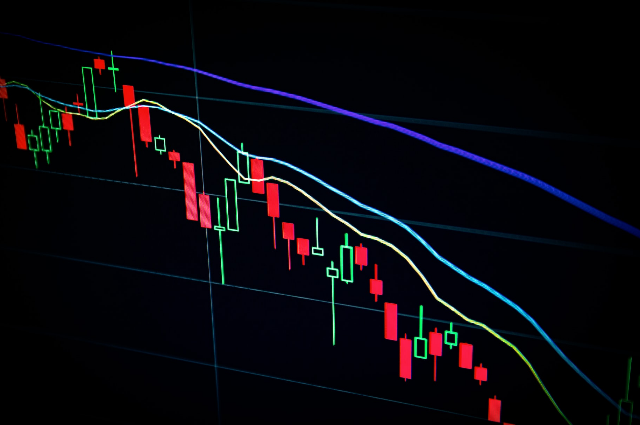
Stock shorting is another name for short selling. This trading strategy entails the seller selling shares that he does not own. By projecting that the price will drop, the seller borrowed the shares. The borrower sells the purchased shares to the buyer at market value. The seller purchases the shares at a lower price whenever the share price drops and records a financial gain. The seller restores the shares to the initial holder after purchasing them.
As an illustration, A borrows 100 shares from B and sells them to C for the growing rate of rupees 50. A will repurchase the shares from C and give them back to A whenever the price falls to rupees 30. It is crucial to remember that on January 25, 2023, after the report was published, it was discovered that they had done short selling in the listed businesses in the Adani portfolio using non-Indian benchmark securities and U.S.-traded bonds.
Claims and arguments made in the report of Hindenburg research

The Hindenburg investigation asserts that Adani Group exaggerated its revenues and understated its debt using rigorous and unusual accounting techniques. According to the research, the company had accumulated significant revenue from joint ventures and subsidiaries that are not included in its consolidated financial statements and this presents an entirely different view of the business's overall health and performance.
They even claim as per their report that the Adani group of companies had created some shell companies for which transfer of funds are taking place and further huge amounts of profits are being transferred into accounts of these shell companies. The Hindenburg investigation charges the Adani Group with market manipulation and tax avoidance concerning these business issues. According to the research, these charges are supported by documents gathered from the Indian government and regulatory bodies.
Opposition parties will leave no stone unturned in attacking Government for Adani-Hindenburg row

This will be the first time, in order to maximise their influence, the parties will collaborate in the order in which they speak throughout the debate in Parliament. They also demonstrated in front of the Gandhi statue in the Parliament complex and call for an investigation.
In order to keep the discussion on SBI and LIC, the parties have also agreed to refrain from bringing up their particular grievances. Senior opposition floor leaders from the Trinamool Congress (TMC), Samajwadi Party (SP), and Aam Aadmi Party (AAP) gathered at 10 am at the office of Congress president and Leader of the Opposition in the Rajya Sabha, Mallikarjun Kharge, to develop a shared approach to the problem.
Rahul Gandhi criticised the BJP Government over Adani controversy
Rahul Gandhi, the face of the Congress, initiated a double strike on the government in Parliament using the Agnipath project and the Adani Group issue. After accusations of wrongdoing and price rigging by US-based short-seller Hindenburg Research, the Adani Group is involved in trouble. The Gautam Adani-led organisation has denied the accusations.
In order to emphasise their claimed connection, Rahul Gandhi also displayed a picture of Prime Minister Narendra Modi and Gautam Adani together onboard the other's aircraft. Speaker Om Birla condemned his behaviour. The ruling party also responded sharply to Rahul Gandhi's accusations, with law minister Kiren Rijiju demanding verification of his allegations.
The leader of the Congress party even claimed that when honourable Prime Minister Narendra Modi was the chief minister of Gujarat the association got its start several years ago. One individual supported Narendra Modi wholeheartedly, stood by him and worked with him to develop the concept of a "Resurgent Gujarat." When Narendra Modi arrived in Delhi in 2014, the real power started. He even alleged that rules were changed for facilitating Adani Businesses and it was claimed that it is prohibited for someone who has never worked in an airport business to participate in its establishment. Further, he quoted that “The Indian government altered this restriction, giving Adani access to six airports. The Mumbai Airport, which is India's most hugely profitable airport, was then taken over from the GVK by the Center using organisations like the Central Bureau of Investigation (CBI) and the Enforcement Directorate (ED)."
Rahul Gandhi asserted that after PM Modi's travel to Australia the State Bank of India awarded Adani a billion-dollar loan. He added that the Bangladesh Electricity Development Board secured a 25-year contract with Adani immediately following the PM's visit to Bangladesh.
Adding more to this, it was even asserted by the leader of the opposition that the head of Sri Lanka's energy board said to the country's parliamentary committee in 2022 that the then - President Rajpaksa had claimed that PM Modi had put pressure on him to award the wind power project to Gautam Adani. This further means that it was never India's foreign policy, instead it ultimately serves as Adani's company policy.
Reply of Adani Group to the Report
The accusations stated in the Hindenburg Research report had been contested, and Adani Group has filed a lawsuit against the research company. In reaction to the report, the company has released a number of statements disputing the claims and defending its business operations. The Adani Group has stressed both its dedication to ethical business conduct and its track record of completing projects that are both environmentally sustainable and socially conscious. The business house has made it clear that it adheres to all applicable rules and requirements completely and that it is dedicated to conducting business in a trustworthy way and that there are no such corrupt practices in the group involved in any business deals.
The Hindenburg Research report, according to Adani, is founded on inaccurate and misleading material and was written with the intention of harming the company's prestige. To defend its reputation and make sure that the public is informed accurately about its activities, the company filed a lawsuit against the research company. Multiple law firms are coming together to partner into this matter and will be defending as well as proving Adani Enterprises have been made a charge of baseless and irrelevant allegations. This might result in restoring or saving the goodwill image of the Adani group of companies and making people in restoring their trust in Adani Enterprises.
Impact on shares after releasing of the report
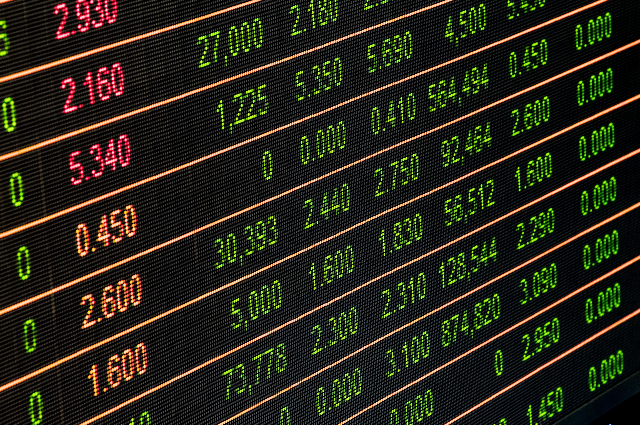
The ripple effects of the Hindenburg report prompted Adani Enterprises to cancel a 20,000 crore FPO. On February 1, 2023, Adani Enterprises stock saw a significant loss of 28.45%, ending at $2,128.70. After the occurrence, the Adani Group declared that it will cancel its 20,000 crore FPO and reimburse investors' money. They said that they took this action to protect the interests of investors. The circumstances that followed the release of the Hindenburg report will now be examined.
In the study, Hindenburg charged Adani Group with engaging in "a brazen scheme over decades of stock manipulation and accounting fraud." Even though Adani criticised the report as inaccurate and malicious and perhaps even warned legal action against the research organisation, the market's response was harsh and swift. Stocks of the Adani Group took a serious blow. The Adani Board declared that it is not "morally right" to proceed with the FPO after observing the dynamic market response.
But there are some other arguments to be explored which justify and question that can Hindenburg report be relied upon? well to answer that we will move to the next part which explores the arguments and credibility of the Adani group among other highly regarded and recognised institutions around the world. These institutions are known for their expertise in analysing separate parts of a company's balance sheet, credit-worthiness, accounts and some different permutations and combinations they apply to rank up a corporation.
Union Finance Minister Nirmala Sitharaman Comment on the Adani-Hindenburg row
Stocks of the Adani Group were collapsing on the exchanges after US short-seller Hindenburg Research published a long list of accusations against Gautam Adani-led business, involving misleading activities and share price manipulations also called price rigging.
Finance Minister Nirmala Sitharaman stated that the SEBI and RBI should always be vigilant to maintain the stability of the sharemarket and suggested that the decline in the price of Adani following the publication of the Hindenburg report was a problem unique to that particular company. She promised that the Indian markets are very effectively handled by its authorities and claimed that banks and insurance firms are "not overexposed" to any particular corporation.
The Minister claimed that the Adani controversy had no bearing on the amount of money coming into India. In the previous several days, the foreign exchange reserves have increased by (USD) eight billion. Adding more to this, the minister assured that banks and insurance companies with exposure to the Adani Group are coming out, discussing all of the issues causing concern, and reporting their exposure.
Recognised International and other institutions' opinion of Adani Enterprises
For India's hopeful shareholders, the nature of the campaign by Hindenburg Research couldn't have been worst. In the report, the new wine was served in an old bottle. Even worse, it surprised me that Indian experts and investors bought into it. Those who made investments in Adani Group enterprises were the ones that suffered the most. Recall that numerous rating agencies, including S&P Global, Fitch Rating, Moody's, CRISIL, ICRA, CareEdge, Acuite, and Brickwork, have given these specific companies stable ratings.
Now the questions arise that Indian investors should trust whom? either the Hindenburg Research or credit rating firms of international institutions.
The credibility of lenders who invested in the Adani Group of enterprises, which have steadily decreased their reliance on Indian public sector banks, is not mentioned by Hindenburg Research. Hindenburg Research is instead raising concerns about the analytical strength of significant lenders like JP Morgan, Citi, Bank of America, Credit Suisse, BNP Paribas, Siemens, QNB, Emirates NBD, DBS, and Standard Chartered. After the 2008 subprime crisis, these banks have very strict compliance requirements. Analysts estimate that private lenders from India and other countries account for nearly three-fourths of the debt held by the Adani Group.
Is Hindenburg an attack on the Indian Banking system?
The foundation of contemporary shareholder capitalism is the idea that those who expose the emperor's shortage of clothing should gain from their efforts. Markets cannot operate properly without bears and short-sellers because they prevent valuations from rising to unsustainable levels. That does not imply that people enjoy them. Bulls may be screaming total and be invested in the businesses they promote or even be lying through their teeth, yet they will still be given platforms on television and warm welcomes on social media. Short-sellers will be criticised for being malicious, evil and bears for not being properly patriotic.
Some banks are facing a crisis. The question arises why even some banks are having trouble surviving with efficient funds? The answer to that is because banks had provided the Adani group with financing. They are therefore directly exposed. Banks would suffer if this problem spread to bad loans. The Adani group, however, is not directly exposed by all banks. In practice, international investors/bonds rather than banks hold the majority of Adani's debt. The Domino effect, however, governs the world of finance. For instance, when the US housing market crashed in 2008, Indian banks were also affected, in addition to American banks.
So, the question now arises: what exactly is the domino effect? ; well to answer the same I would like to explain it through an example. We know that banks lend to each other for eg. HDFC Bank lends to Bank of Baroda and then bank of baroda lends to HSBC and so on the chain continues. So, if one bank collapse the other banks tied or part of the chain will also gonna collapse.
This issue affects major financial institutions as well, not simply banks. For instance, even though LIC is not a bank, Indian banks will also struggle if it suffers for a certain reason. Why? Banks will be indirectly exposed in some way. As lenders, banks lack a long-term perspective on businesses. They have market-to-market holdings (for instance, they may believe that Adani is providing us with 100 Cr in collateral), and if the price of the collateral declines (due to a drop in stock price) below a certain level, they may start selling.
A downward spiral results from this. The falling spiral you've probably noticed time and time again that when one person claps, others quickly follow after. Similar things occur with large investors. If one bank or significant investor sells, others will likely follow after, especially if things seem unstable. Simply put, people rescue what they can.
Conclusion
While a market collapse tore across the enterprises, hundreds of representatives of the Indian opposition parties protested in New Delhi, criticising investments made by various state-backed corporations into Adani's businesses. Political rivals of the prime minister assert that he supports Adani, but the Modi administration has refuted this assertion. The Hindenburg controversy is an effective invention for PM Modi's political enemies in India. Modi's growth strategy is also being called into doubt, in addition to their connection. In a report responding to Hindenburg's claims, the Adani Group stated that the short sellers' study was “not merely an unwarranted attack on any specific company, but a calculated attack on India, the independence, integrity, and quality of Indian institutions, and India's growth story and ambition.” The downturn in Adani shares, which reached $110 billion in two weeks, impacted the broader Indian markets. The benchmark Sensex and Nifty 50 indices are falling, causing worries about financial regulation and borrowing in the country; which might have broader consequences.
There are still a lot of questions that remain unanswered on whether Hindenburg report is not released with the intention to fail Indian markets? Is it a conspiracy against India or are there flaws in Adani businesses itself? Lots of questions, concerns and doubts are to be taken up in this issue. Further new developments may be seen in this on whether Adani-led empire will bounce back and will prove the Hindenburg report as a false and malpractice research agency? These questions will be answered in future and what remains to be seen for the Indian economy already in January 2023 end itself many layoffs have been there but for now, to end this on a positive note I hope India will achieve new heights and hope that recession or worst should not come.
Disclaimer - This article is based on various facts and references taken from research blogs, Media resources and studies. It doesn't attempt to hurt any sentiments and doesn’t discriminate among any caste, religion, gender, sex, or place of birth. The author and Reflections.live team is not liable for any sort of legal action against them. By reading this blog, readers give consent that the views in this article are opinions based and readers might agree or disagree with the same for which they can’t sue the author or Reflections.live team or people associated with this blog directly or indirectly, for any sort of disagreements in case they have. Further Reflections.live team and the author have high regard and respect for all opinions. Thanks for taking out crucial time and happy reading!
. . .
Reference:
- https://timesofindia.indiatimes.com
- https://taxguru.in/finance
- https://www.barandbench.com
- https://m.rediff.com
- https://www.outlookindia.com
- https://www.indiatoday.in
- https://m.economictimes.com
- https://www.theguardian.com
- https://www.business-standard.com
- https://www.opindia.com
- https://www.cnn.com
- https://news.bloomberglaw.com

